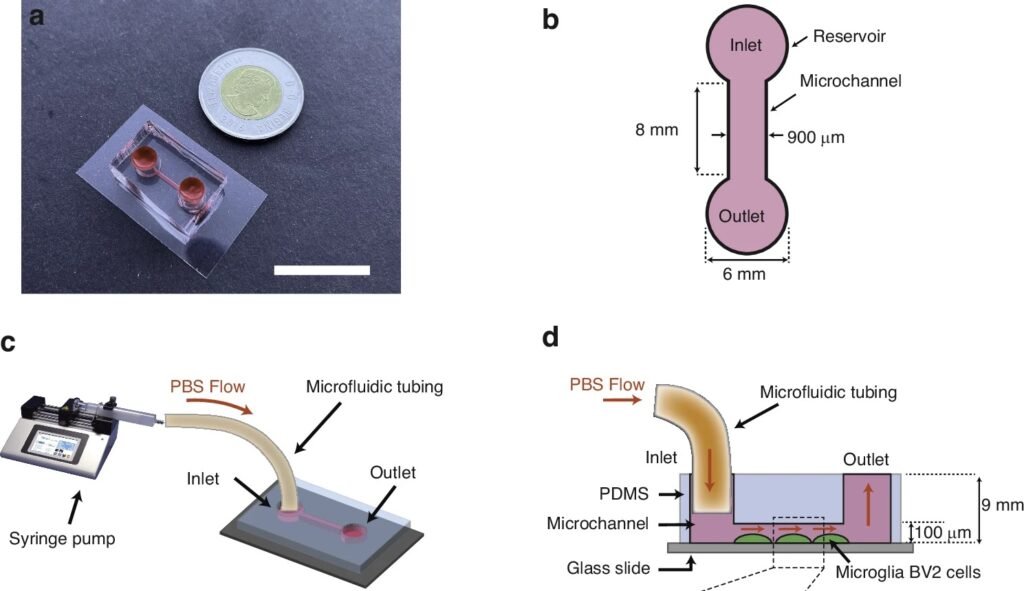Researchers at Concordia University have developed a new microchip that can monitor brain activity related to Alzheimer’s disease in real time. This technology could help scientists better understand how the disease progresses and lead to earlier and more accurate diagnoses.
Alzheimer’s disease is a complex condition that affects memory, thinking, and behavior. It develops gradually, often over many years, and is difficult to study because traditional tools only provide snapshots of brain activity. The new chip developed at Concordia changes that by offering continuous monitoring of the brain’s electrical signals and chemical markers.
The chip is designed to detect specific biomarkers associated with Alzheimer’s, such as changes in neurotransmitter levels and abnormal electrical patterns. It can be implanted in laboratory models to observe how these signals evolve over time. This allows researchers to see the disease unfold in real time rather than relying on periodic scans or tissue samples.
One of the key advantages of this technology is its ability to capture subtle changes that might otherwise go unnoticed. By tracking brain activity continuously, the chip can reveal early warning signs of neurodegeneration. This could help doctors intervene sooner, potentially slowing the progression of the disease or improving the effectiveness of treatments.
The chip also opens the door to more personalized medicine. Because it provides detailed information about how an individual’s brain is functioning, it could be used to tailor treatments to each patient’s unique condition. Researchers could also use the chip to test how different therapies affect brain activity, helping to identify which treatments are most effective for specific patients.
Although the chip is still in the experimental stage, the research team is optimistic about its potential. They are currently testing the device in preclinical models and plan to refine its design for future human studies. The goal is to create a tool that is both accurate and minimally invasive, making it suitable for long-term monitoring.
Article from Concordia University: A new chip could help scientists track Alzheimer’s disease as it unfolds in real time
Abstract in Microsystems & Nanoengineering: Alzheimer model chip with microglia BV2 cells

